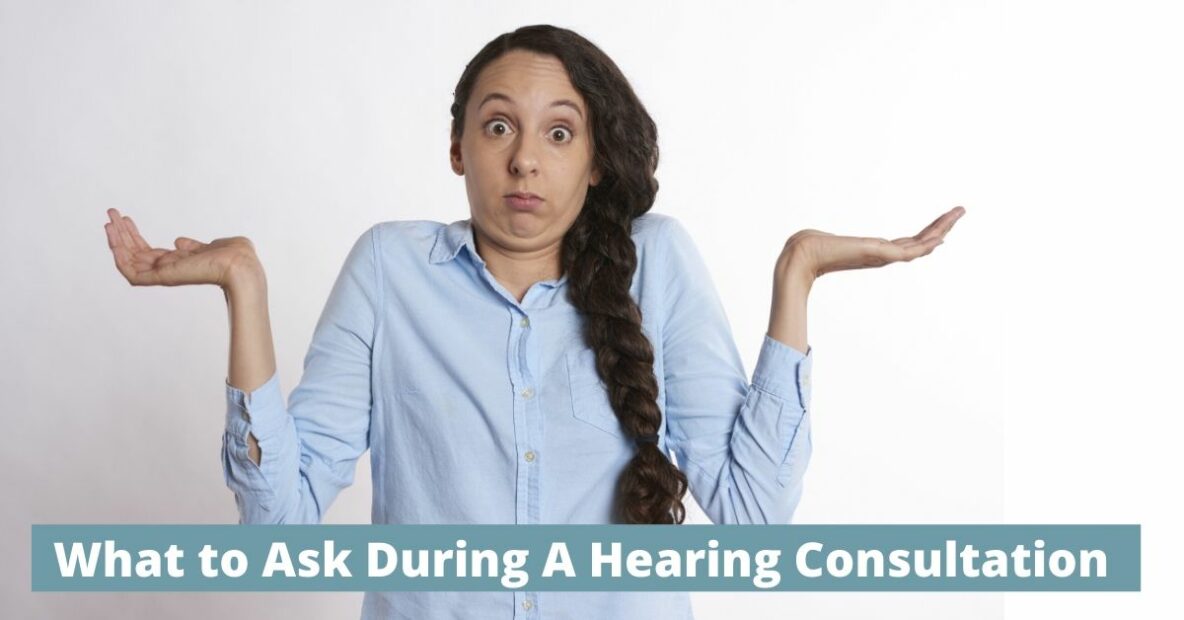If you have booked a hearing appointment for yourself, then good for you! The first step toward better hearing is learning about your hearing and having it checked. With this awareness, you can be in a better position to choose the best treatment for your needs.
You’ll want to know everything you can before you make such a significant investment. Upon going to your hearing test and appointment, you may expect your hearing professional to ask you some questions. But you should be armed with your questions too.
It’s easy to get overwhelmed during a hearing consultation, particularly with such an important decision before you. For this purpose, carrying with you the following list of questions will be helpful. By doing so, you’ll leave the appointment wholly prepared for your journey towards better hearing.
Which sort of loss of hearing do I have?
Understanding the nature of your condition can help you decide on the most appropriate treatment. It’ll also help you learn how to protect your existing hearing. There are three different types of hearing loss.
- Sensorineural hearing loss happens when the inner ear or nerve pathway to the brain is impaired.
- Conductive hearing loss occurs when the sound passes inappropriately to the eardrum through the outer ear canal;
- Mixed hearing loss is a combination of both.
What hearing aids are best for me?
With your hearing specialist, you should be open about the kinds of situations you’re in where hearing is most difficult. For instance, your interests, your home environment, and the types of places you like to go out can include times where you are struggling to listen. By talking about the kinds of features that will support you in these settings, your hearing professional can hone in on the hearing aids that best fit your lifestyle.
Are both hearing aids needed?
You’ll probably need two hearing aids, one for each ear. You may assume you can hear very well from one of your ears, but both ears are likely suffering from hearing loss.
Not only will you be able to hear from both ears while you wear two devices, but you’ll also get enhanced binaural hearing, and your brain will have an easier time understanding all the sounds around you.
How do I cope with my new hearing aids?
It may seem obvious that to protect your hearing aids, you will need to do some necessary cleaning, but there are other steps you need to take to make sure they last as long as possible.
Beyond a simple wipe-down with a clean cloth to remove debris, specially crafted tools are available to clean the tiny crevices of hearing aids where earwax other buildups can accumulate. Learning how to do this yourself will help you to understand how best to keep your hearing aids working for years to come.
How do I operate my new hearing aids?
You’ll want to understand how to replace the batteries. How frequently will the batteries be charged or replaced? Do you need to handle manual controls, or are they a rechargeable option that only needs to be plugged in? How do you change the volume on the hearing aids, and how can you insert and remove the hearing aids without damaging them?
How long does it take me to adjust to my new hearing aids?
Hearing aids can make a difference when you can no longer hear well on your own, but unlike correcting your vision with prescription eyeglasses, it takes time to get used to wearing a hearing aid.
If you’re wearing a device for the first time, ask your hearing professional how you can speed up the adjustment time. Ask for a hearing schedule that you can use to ease yourself into wearing your new devices. You will need to be patient with hearing aids, but the payoff will be worth it.
At the California Hearing Center, we’re on hand to help you on your journey towards better hearing. We trust our understanding and help will help you get the best care to fit your needs. If you think you are affected by hearing loss, contact us today to schedule a consultation.










